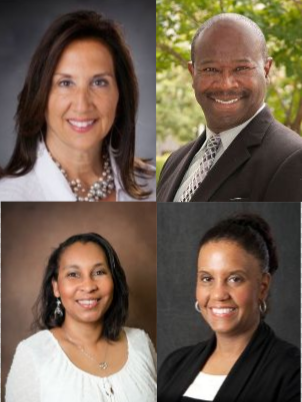
Just five years ago, dedicated chief diversity officers were a relative rarity within academic medicine. People appointed to these positions had unprecedented opportunities, but also faced challenges in where to focus their efforts, how to get others on board with the mission, critical prioritization of this work, and even how to create a shared understanding for basic terms like diversity and inclusion.
In 2011, when as Associate Dean for Diversity & Inclusion, Judy Seidenstein accepted the role as Duke School of Medicine’s inaugural Chief Diversity Officer, she remembers that there were only a handful of peers in comparable roles across other academic medical centers serving as members of the Dean’s senior leadership team. She enthusiastically responded to the opportunity to serve as a member of the first Healthcare Executive Diversity and Inclusion Certificate (HEDIC) cohort, an intensive academic program offered by the American Association of Medical Colleges designed to develop the competencies leaders need to drive diversity strategy as a core component of excellence in academic medicine. The program originally brought together a small but quickly growing group of diversity leaders from Schools of Medicine across the country to develop a “roadmap” for leading inclusive excellence in academic medical institutions.
Seidenstein and a small group of cohort members bonded while earning their certificates at Georgetown University and vowed to meet regularly to share best practices and strategies to improve diversity and inclusion. They saw each other occasionally at conferences and consulted with and supported each other during the seemingly endless tragic events (think Charlottesville) that unfolded across the nation. Their busy schedules kept them from gathering at each other’s home institutions’ to share promising practices as well as lessons learned-- until this July, when the group met at Duke for a three-day “CDO Think Tank.”
“Almost six years later, we finally made it happen,” Seidenstein chuckled. The cohort included Darin Latimore, MD, Deputy Dean for Diversity and Inclusion at the Yale School of Medicine, V. Faye Jones, MD, PhD, Associate Vice President for Health Affairs/Diversity Initiatives at the University of Louisville Health Sciences Center, and Sherree Wilson, PhD, Associate Dean for Cultural Affairs and Diversity Initiatives at the University of Iowa Carver College of Medicine.
The group kicked off their three days together by sharing a thought-provoking and inspiring dinner with the School of Medicine’s new Dean, Mary E. Klotman, MD. They also had in-depth discussions with members of the School’s Office of Diversity and Inclusion and Duke University’s Office of Institutional Equity, exchanged ideas with D&I faculty leaders from across the School of Medicine, and shared their institution’s strategies for improving diversity and inclusion.
Dr. Darin Latimore said that he was energized by the meeting. “It is seldom that I have the opportunity to spend two days with national thought leaders around D&I, which is exactly what happened during my time at Duke,” he said. “The time allowed us to discuss how to implement best practices at our institutions while also brainstorm on how our four institutions can collaborate to expand knowledge around D&I priorities.”
For Dr. Faye Jones, the Think Tank was an opportunity to learn about what to expect when she begins integrating health disparities into the medical school curriculum at the University of Louisville. During the Think Tank, she spoke with Dr. Kenyon Railey, MD, Course Director for the groundbreaking Cultural Determinants of Health and Health Disparities curriculum – the first non-elective course of its kind to be required of first and second year Duke medical students.
“The details and strategies that Dr. Railey provided to us will be very useful as we proceed on this path,” Jones said. “His willingness to be very open about the complex challenges faced in this pilot year and the strategies to overcome them was very informative.”
Dr. Sherree Wilson said this multi-institution peer group collaboration is key to successfully navigating the increasingly complex field of work. “We sometimes joke that we have great job security because the relevance of and need for D&I strategies continues to expand. This was a rare yet important opportunity to come together to share successes and challenges that we are facing while also bouncing ideas off of each other in terms of advancing D&I work in academic medicine and at our individual institutions,” she said.
The cohort members have committed to monthly check-in meetings via teleconference so they can continue to reap the benefits and maintain the momentum of their valuable idea and strategy exchange. They aspire to even more collaboration among the four institutions and plan to co-create and contribute to the body of scholarly work so important to this work.
They have already made plans for another in-person think tank in 2019.